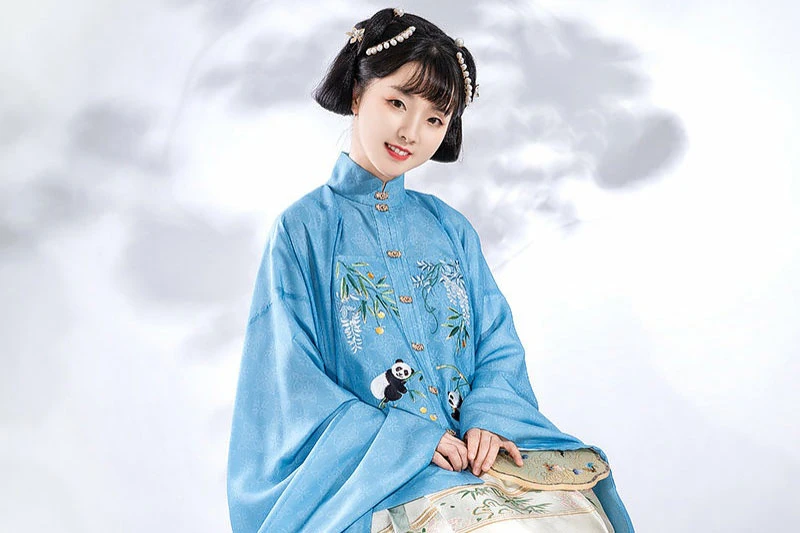Hanfu refers to the traditional dress worn by the Han Chinese ethnic group for millennia until the early 20th century. Hanfu encompassed the flowing, loose silhouettes and elaborate embroidery that characterized historical Chinese fashion across various dynasties.
In recent decades, Hanfu has been seeing a noticeable resurgence among some segments of Chinese youth and culture. So why has interest in Hanfu made a comeback? And what is the cultural significance of this tradition?
What does the Hanfu dress represent?
Hanfu represents traditional Han Chinese culture and ethnic identity. More specifically, some key meanings behind the Hanfu dress include:
- A connection to Chinese history, spanning over 3000 years of evolved style through various dynasties.
- Cultural values like virtue, sophistication, and status expressed through details like color symbolism and intricate embroidery.
- Confucian ideals of modesty and propriety reflected in the loose, flowing silhouettes that cover most of the body.
- Celebration of Chinese arts and craftsmanship shown in the exquisite textile and ornamentation work.
- Pride in being Chinese and confidence in Chinese culture, evidenced by the modern revival movement.
- A romanticized version of China’s past golden ages and imperial dynasties.
One major reason Hanfu has regained popularity is as a celebration of traditional Chinese culture and heritage. For enthusiasts, wearing Hanfu allows them to visibly express pride in being Chinese. It represents a connection to China’s long cultural history that spans over 3000 years from the Warring States into the Qing dynasty.
The silken robes and jade accessories of Hanfu offer a tangible way for people to celebrate their ethnic heritage. Its reemergence signifies a growing cultural confidence and a rejection of past attitudes that denigrated Chinese traditions as backwards.
Another factor driving Hanfu’s revival is resistance to the wholesale Westernization that occurred in China throughout much of the 20th century. For youth today, rejecting modern Western clothes in favor of Hanfu represents a protest against the erasure of their cultural identity. Young Hanfu enthusiasts regard the tradition not as backward, but as representing the essence of Chinese culture that should be valued and preserved.
Beyond just cultural implications, many youth also simply find Hanfu aesthetically beautiful and enjoyable to wear. The vivid colors, flowing silhouettes and decorative elements appeal artistically to enthusiasts.
Hanfu offers a fresh fashion perspective compared to mainstream modern clothing. The elaborate costumes also work beautifully for photography, dance, singing, Chinese opera, and cosplay.
For young generations coming of age in China’s rapidly modernizing society, Hanfu also offers a way to create and celebrate a distinctly Chinese identity. It provides a tangible connection to their cultural roots and traditions from throughout Chinese history.
Donning Hanfu allows youth to visually identify with China’s past dynasties and evokes a romanticized historical era. This offers an alternative to the increasingly homogeneous globalized culture of today’s world.
What culture does Hanfu come from?
So what is the cultural background of the Hanfu tradition? Hanfu originated from the Han ethnic group, who make up over 90% of China’s population. The Han people trace a continuous cultural and ethnic history spanning over 2000 years back to the Han Dynasty. So Hanfu represents the heritage specifically of the dominant Han Chinese ethnicity.
However, China is ethnically diverse with 56 recognized nationalities. Many minority groups like the Miao, Tibetan, and Uyghurs have their own unique traditional clothing. Their folk dress deserves equal cultural respect and preservation.
In summary, Hanfu has reemerged in modern China as a way for youth to celebrate their cultural roots, and express creativity through fashion and performance. Its popularity signifies a renewed pride in Chinese heritage, though only from the main Han ethnic perspective. Looking ahead, interest in Hanfu will likely continue rising as new generations keep exploring their ethnic identity.

